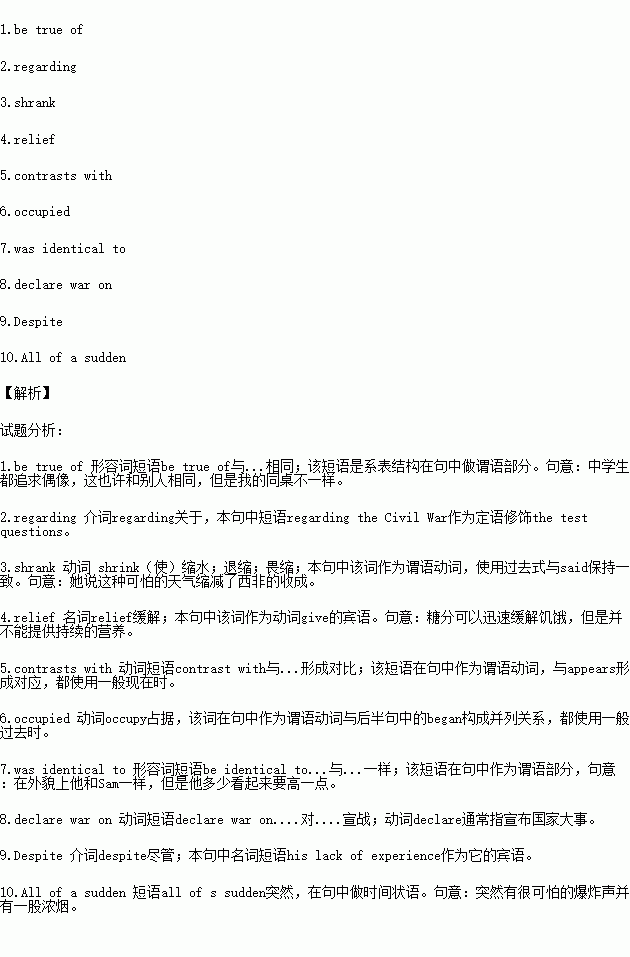题目内容
完成句子
根据所给首字母, 汉语提示或语境写出符合句意的单词或词组, 每空一词。
1.Middle school students chase after entertainment icons (偶像). That might _____ _____ _____ (与...情况相同)somebody else but not of my desk-mate.
2.I was unable to answer the test questions r_________ the Civil War.
3.She said the terrible weather s_______ harvests in Western Africa that year.
4.Sugar gives quick r_______ to hunger but provides no lasting nourishment (营养).
5.It appears the blue bed-cover_______ _______ (与...形成对比) the yellow curtains.
6.The aged man o______ a quality position in the morning market and began to sell eggs.
7.He ___ ____ ___ (与...一样) Sam in appearance, but somehow looked a little taller.
8.Some of the President’s advisers feared Hitler might _____ _____ _____ (向...宣战) the USA.
9.D______ his lack of experience, he got the job.
10.____ ____ ____ (突然) there was a terrific bang and a flash of smoke.

